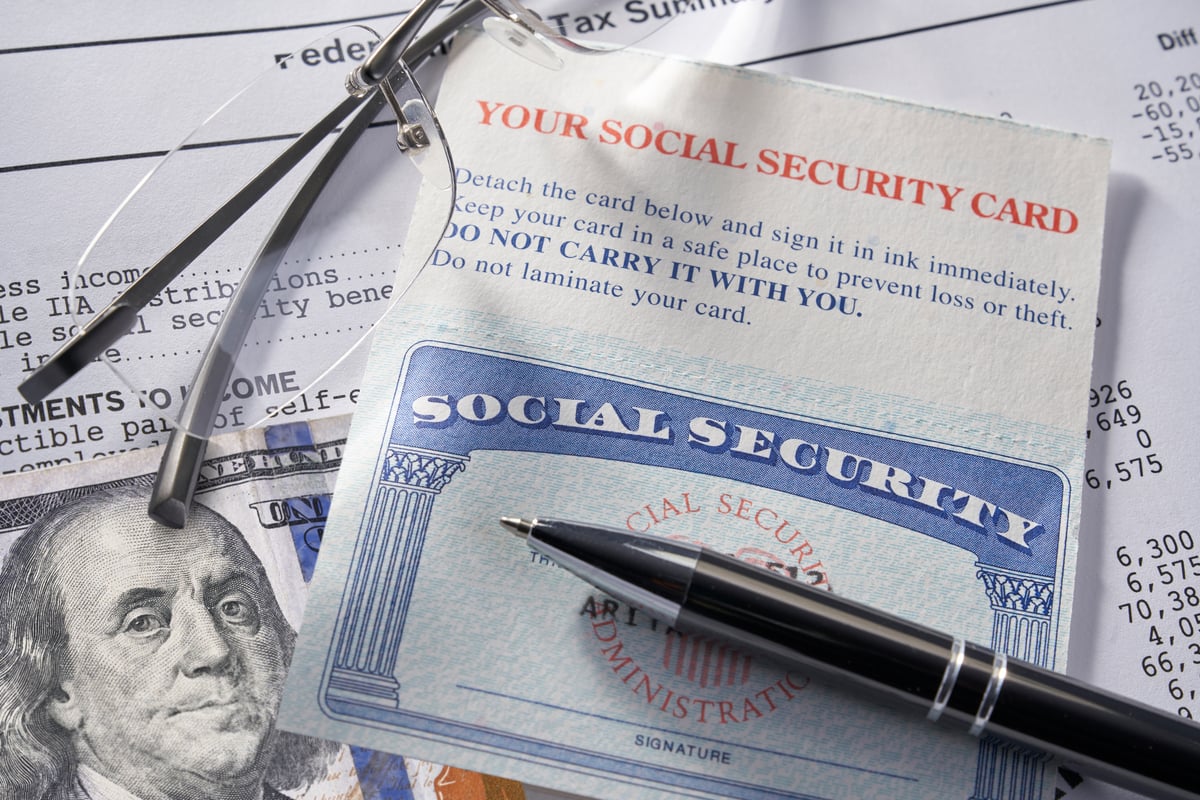As Elon Musk took a figurative chainsaw to the Social Security Administration earlier this year, there were those, like U.S. Rep. John B. Larson (D-Connecticut), who suspect the move had a lot to do with a desire to privatize Social Security.
Social Security privatization refers to transforming the current Social Security system, primarily a government-run program, into a system that allows Americans to invest their Social Security contributions into private accounts rather than paying into the federal program.

Image source: Getty Images.
The challenge
If you've ever looked at a paycheck and wondered what FICA stands for, it's the Federal Insurance Contributions Act. Of your gross wages, 6.2% goes into FICA to pay for Social Security and another 1.45% goes toward covering Medicare. Your employer matches both amounts, resulting in a total contribution of 15.3% of your wages.
Contributions made today support benefits for retirees, people with disabilities, and survivors of workers who have died. Think of it as today's employees helping fund the benefits of today's retirees. Since Social Security was first established in 1935, the understanding has been that each generation of retirees will be supported by younger workers still on the job.
A perfect storm of demographic changes in the United States put the Social Security system in a vulnerable position. Between the declining fertility rate and increased life expectancies, there are fewer workers to support an ever-growing group of retirees. As of this year, 12% of the total population is 65 or older. By 2080, it will be 23%.
In other words, the worker-to-beneficiary ratio is expected to drop dramatically, potentially impacting the SSA's ability to fulfill promised benefit payments.
A move away from FICA?
Among the proposals being made is the suggestion that Americans retain the 6.2% of their wages currently allocated toward FICA. Instead, they can invest it in private investment vehicles and decide how the money should be allocated.
Supporters of Social Security privatization argue that the change would give individuals greater control over their retirement savings and potentially allow them to earn returns higher than those provided by the current system's fixed benefits. They also see it as a way to reduce the financial burden on the federal government.
On the other side are those who worry that some Americans may not have the financial literacy or resources to manage investments on their own. Not everyone has experience managing assets, and it's concerning to think about throwing millions of people into the investment pool who may never have learned to manage their finances effectively.
Another concern involves what happens to those who spend years investing for retirement only to hit a string of bad luck. That may mean making bad investment choices or even facing losses due to uncontrollable setbacks, like a recession or bear market. Opponents worry about what will happen to those who hit retirement age with little money put away through no fault of their own, and point out that the current Social Security system offers fixed benefits that retirees can count on.
Countless issues to work through
Even if Congress were able to come to a consensus and privatize Social Security, there are thorny issues that would need to be managed. For example:
- What would be done for those who enter retirement with inadequate savings?
- How would SSA manage the transition costs of shifting to a privatized system while also funding benefits for existing Social Security recipients?
- Would lower-income workers be at a disadvantage, both in terms of having enough money to invest and less access to financial professionals who can teach them the ropes of investing?
Partial privatization?
Some supporters of Social Security privatization suggest allowing workers to invest a portion of their current Social Security contributions in private accounts, with the remainder allocated to the traditional pay-as-you-go system. While this model would lower the Social Security benefits earned by workers who choose this path, they would have a safety net of some sort to look forward to in retirement.
Given how difficult it can be to get Congress to agree on anything, there's no doubt that deciding to upend the entire Social Security system will be an uphill (and long-fought) battle.
In the meantime, the more immediate goal is to find a way to shore up the current system so that retirees will receive every dollar they've been promised.





